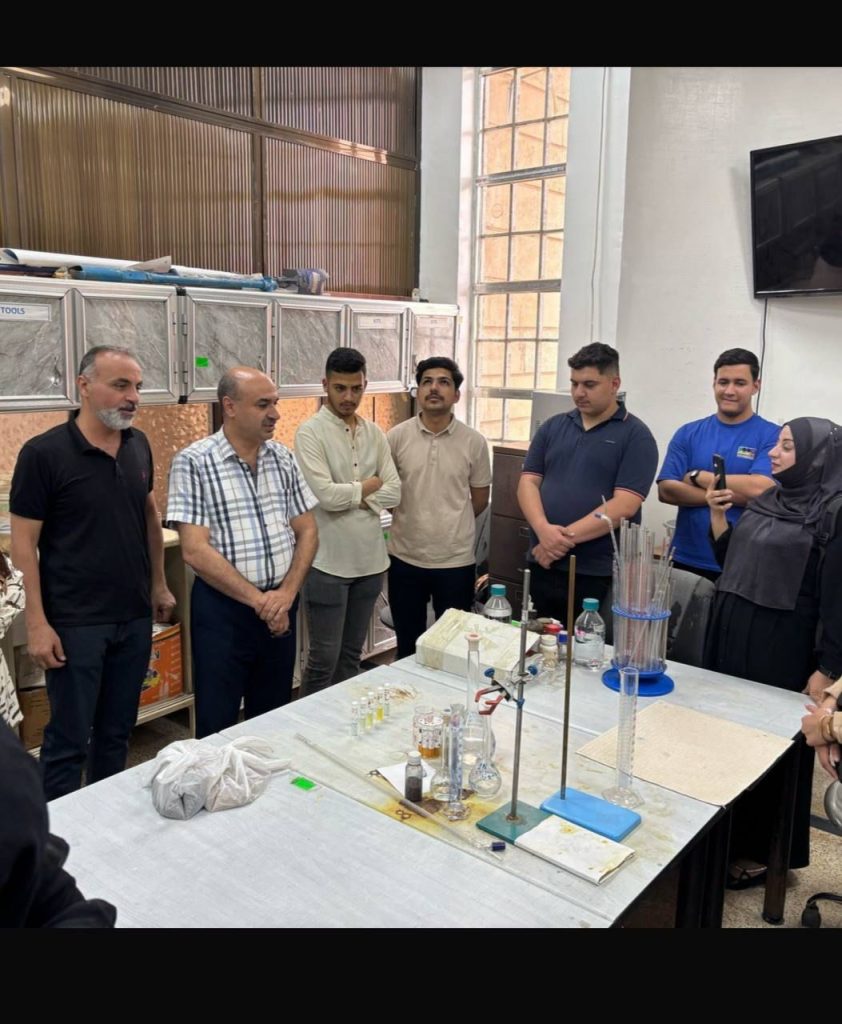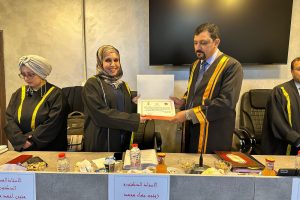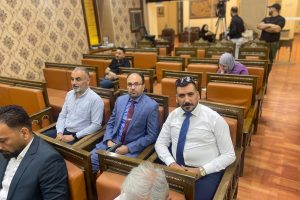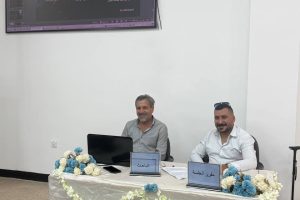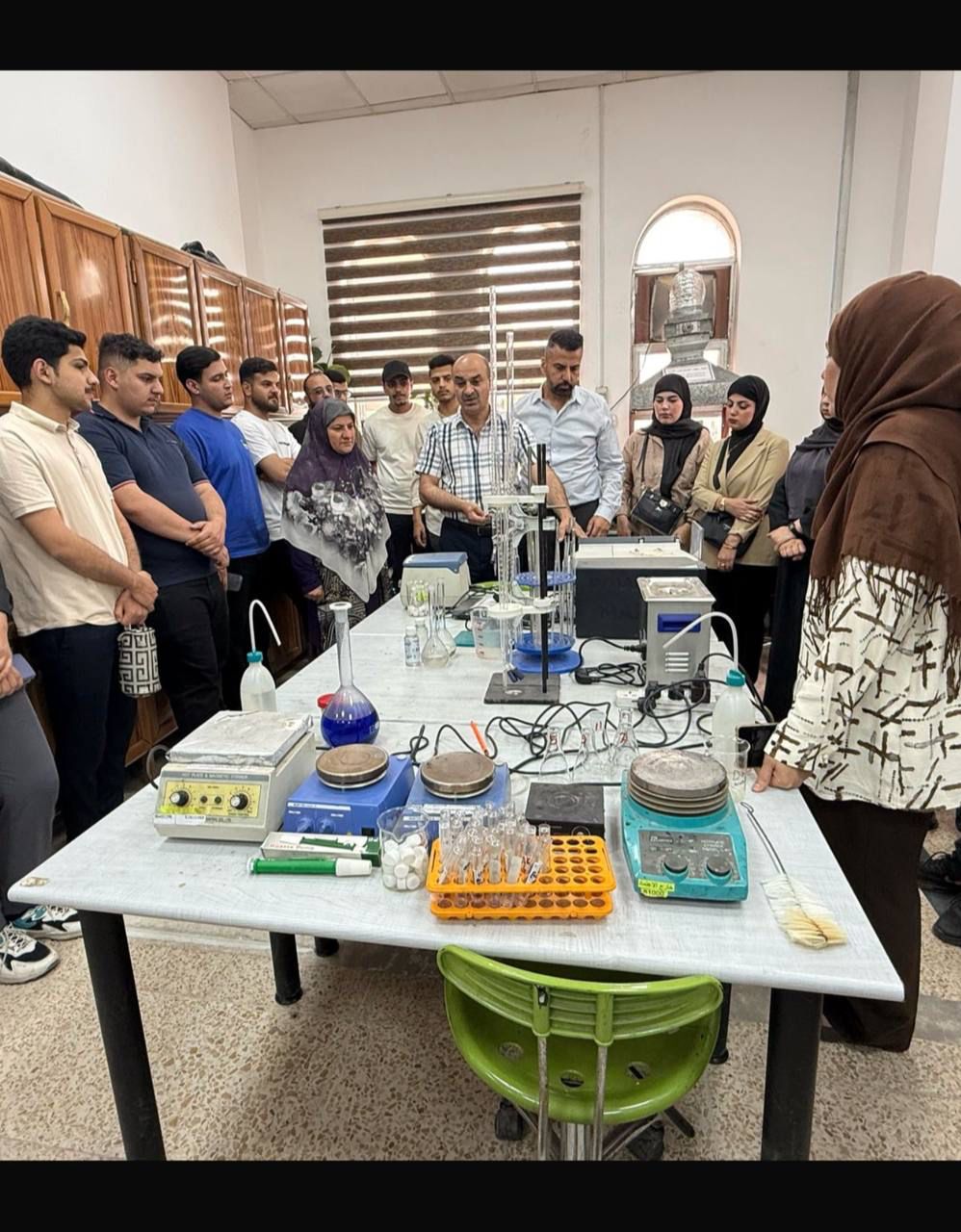
A scientific visit for students of the College of Civil Engineering / Department of Environmental Engineering to the Environmental Research Center
Based on the principle of scientific cooperation between university departments and research centers, the Department of Environmental Engineering, under the supervision of Assistant Professor Dr. Shaima Talib Kazim, Assistant Professor Faiza Ahmed Abdul Karim, Assistant Professor Ahmed Fouad Nashat, and Assistant Professor Dr. Haid Ismail Abdul Kazim, organized a scientific visit for third-year morning students to the Environmental Research Center on Thursday, April 24, 2024. The visit aimed to gain practical experience, gain scientific knowledge, and learn about the center’s tests and equipment relevant to their work. The Head of the Environmental Pollution Department (Dr. Mukheled Al-Sameraiy ) welcomed the attendees to the Environmental Pollution Department and gave an introductory briefing covering the establishment of the center, the administrative structure and the tasks carried out by the center in terms of activities and events in general. Then he touched on the Environmental Pollution Department in particular in terms of job descriptions and the laboratories operating in it. He explained to them that the Instrumental Analysis Laboratory and the Soil and Water Laboratory had obtained accreditation certificate number (TL 012) from the Iraqi Accreditation Authority (IQAS) – Laboratory Accreditation Department – Ministry of Planning in accordance with the standard (ISO/IEC 17025:2005) in the field of chemical materials testing and is now on its way to renewal. Then the attendees moved to the automated analysis laboratory, where he gave an introductory briefing on the nature of the laboratory’s work and the activities it carries out in the field of conducting laboratory tests, in addition to providing an introductory overview of the atomic absorption measuring device and the scope of this device’s work in conducting the necessary tests in the field of estimating heavy elements in soil and water, as well as introducing them to other devices available in the laboratory, and then to the soil and water laboratory, where they were briefed on the nature of the laboratory’s work and the testing activities it carries out in the field of soil and water.
